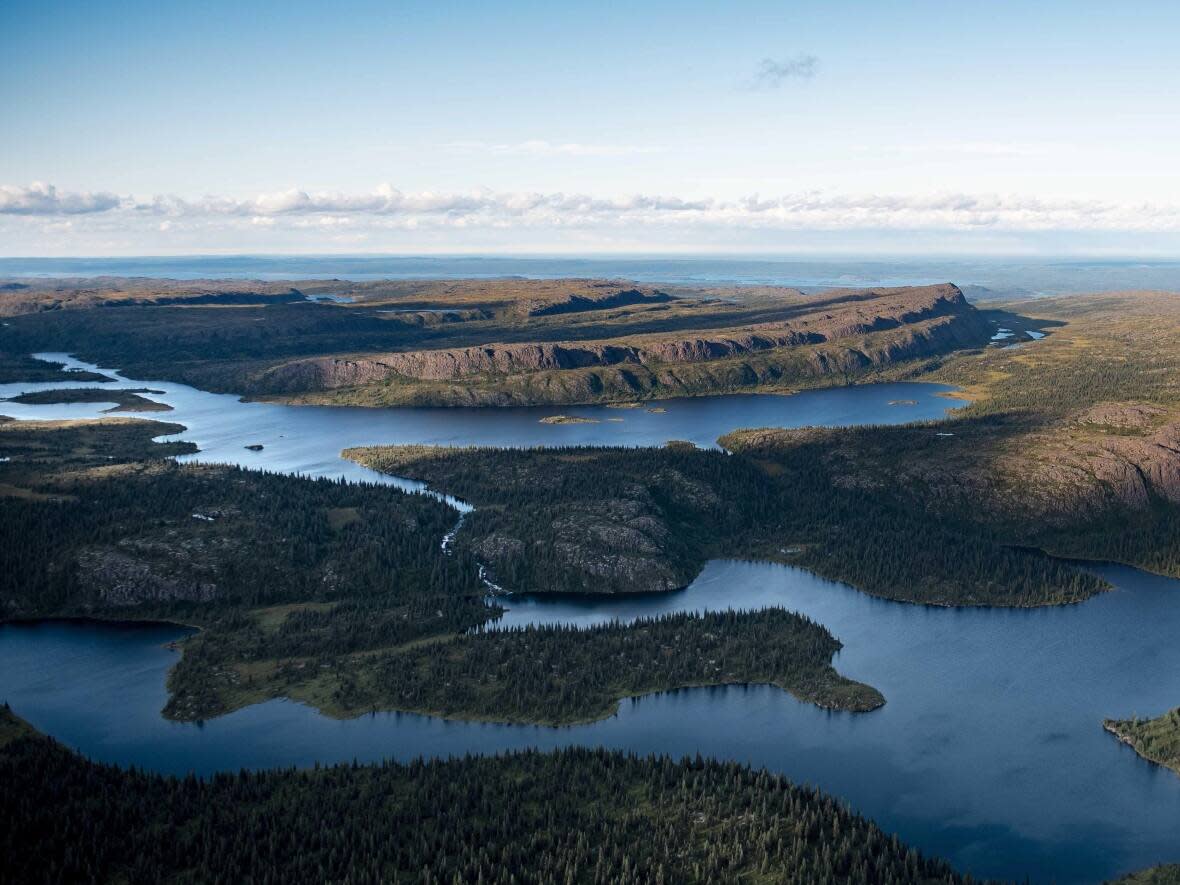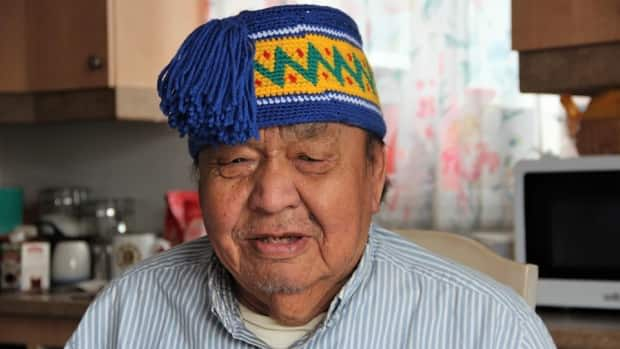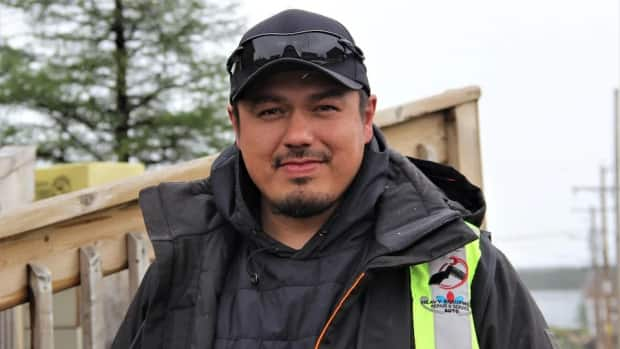Naskapi Nation vows to protect its paradise in northern Quebec

David Swappie is one of the oldest members of the Naskapi Nation of Kawawachikamach, 1,150 kilometres north of Montreal, near Quebec's border with Labrador.
No one knows Swappie's exact age.
The elder, who was born and raised near Fort Chimo — the village now known by its Inuktitut name, Kuujjuaq, at the mouth of the Koksoak River on Ungava Bay — isn't really sure himself.
"I think he's at least 100 years old," said his grandson, who bears the same name.
Decades ago, Swappie Sr. and his family moved south, to Fort Mackenzie, known by locals as Waskaikinis. It's part of the Naskapi Nation's vast traditional territory, ten times the size of the island of Montreal, and the Naskapi want all of it designated as a protected area.
But the territory — which includes Cambrien and Nachicapau lakes, northwest of Kawawachikamach — is also in Hydro-Québec's sights. The provincial utility had plans to build a new hydroelectric dam in the area.
The 800 people of Kawawachikamach have deep historical ties to the territory, even though it has been uninhabited for generations. Between the 1830s and the 1950s, the Naskapi people were forced to relocate time and again, eventually to the Kawawachikamach reserve just a stone's throw from Schefferville, about 100 kilometres south of Fort Mackenzie.
Swappie Sr., however, is old enough to have been raised on that traditional land.
It's where he went hunting for the first time as a child. It's where he spent days dancing around a campfire and observing his own elders as they trapped and fished.
"I fell in love with that land because there's everything there," the elder said in Iyuw Iyimuun, a dialect of the Innu language spoken by the Naskapi people, as his grandson translated.
"Even today, I'd rather be over there than here [in Kawawachikamach], trying to get assimilated. I really miss it. I don't like following some white person who tells me what to do."

Hydro-Québec dam on hold — for now
To further its efforts to turn the 5,740 square kilometres of land the Naskapi Nation considers its territory into a protected area, the community sought help from the Canadian Parks and Wilderness Society (CPAWS), a non-profit group that aims to help protect public land, freshwater and oceans.
A hydroelectric dam would ruin the landscape, said Alice De Swarte, the senior director of the Quebec branch of CPAWS.
"This would have the effect of swallowing up the whole site. It would be an insurmountable loss for the Naskapi," she said. De Swarte said the territory "is coveted because of its potential."
For now, the Naskapi don't have to worry about the dam being built. The nation signed an agreement with Hydro-Québec in 2018, which ensures the utility won't be able to build a dam in its territory until at least 2038.
Even then, no construction can proceed without the nation's consent, said Noah Swappie, a former chief of Kawawachikamach.
"That word [consent] — they didn't like it," said Noah Swappie.
The former chief doesn't expect the community's opposition to a dam on its territory to disappear.
"We'll go as far as we need to in order to stop this project," he said. "Hydro-Québec always has plans."
"If we don't protect our territory, we won't have anything left."
'The Naskapis are sitting on a gold mine.' - Band advisor Robert Prévost
The deal still allows the utility to look into alternatives to hydroelectricity. Hydro-Québec has set up a committee with members representing the different stakeholders, according to the utility's spokesperson, Francis Labbé.
"All avenues are being explored," Labbé said, pointing to wind power as an example.
Mining companies are also looking to exploit the traditional territory, according Robert Prévost, an advisor hired by the band who says businesses are exploring "all around the area."
"The Naskapis are sitting on a gold mine," Prévost said, referring to the territory's deposits of rare earth, iron ore and other minerals.

Preserving heritage, history, resources
People who know the area describe it as picturesque: shifting coastal dunes, turquoise lakes, deciduous trees native to the subarctic latitudes. According to De Swarte, the region is populated by endangered species, like the golden eagle and the peregrine falcon.
Biologists and archeologists continue to explore the region of Lake Cambrien, and they're expected to return next month.
"We found 22 archeological sites that speak to a past occupation," said Moira McCaffrey, one of the archeologists who has examined the site, accompanied by two members of the Naskapi Nation.
Among the artifacts unearthed were glass beads, traces of an ancient campfire and stone tools.
Noah Swappie, the former chief, believes that protecting the territory would be a win for his community and for all Quebecers.

He'd like to see the launch of ecotourism, so others can discover the land. He said that kind of development would be preferable to a payout from Hydro-Québec, in exchange for an energy project that would forever alter the landscape.
"We have to find balance. We don't want to destroy the entire territory for money," he said.
David Swappie Sr., agrees.
"Sure, we would receive money from Hydro-Québec, but not everything is about money," the elder said.


